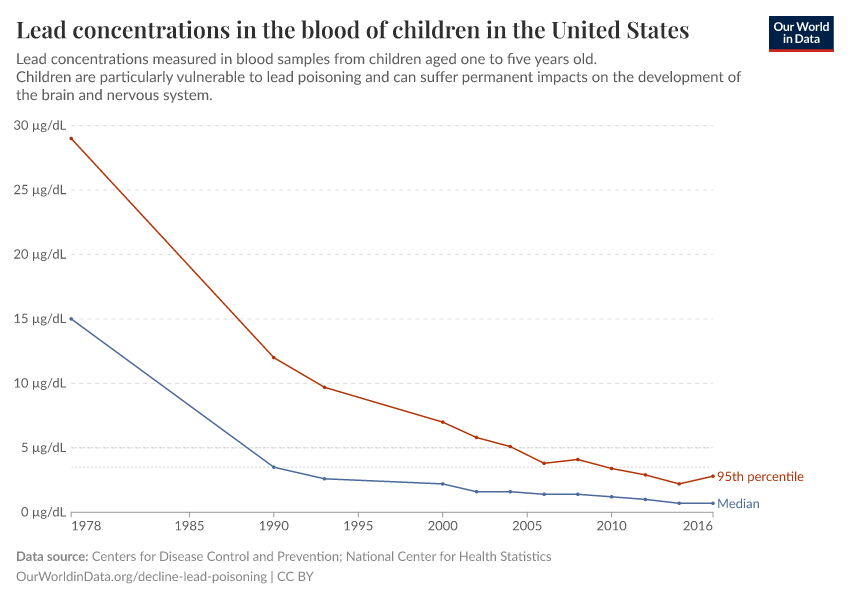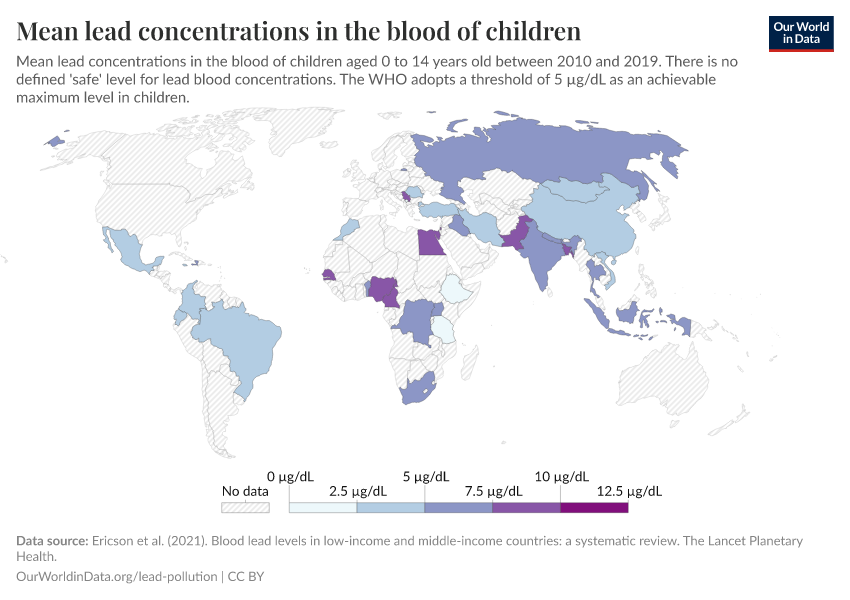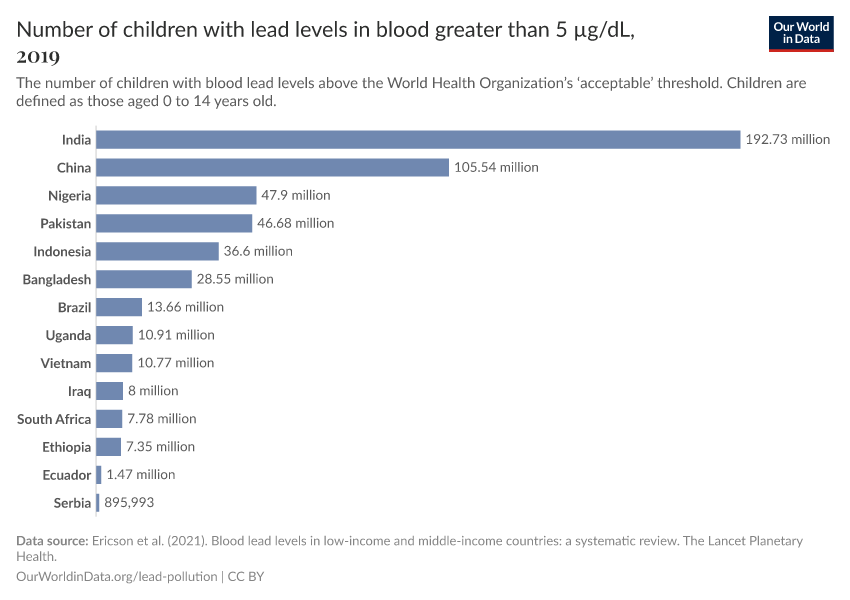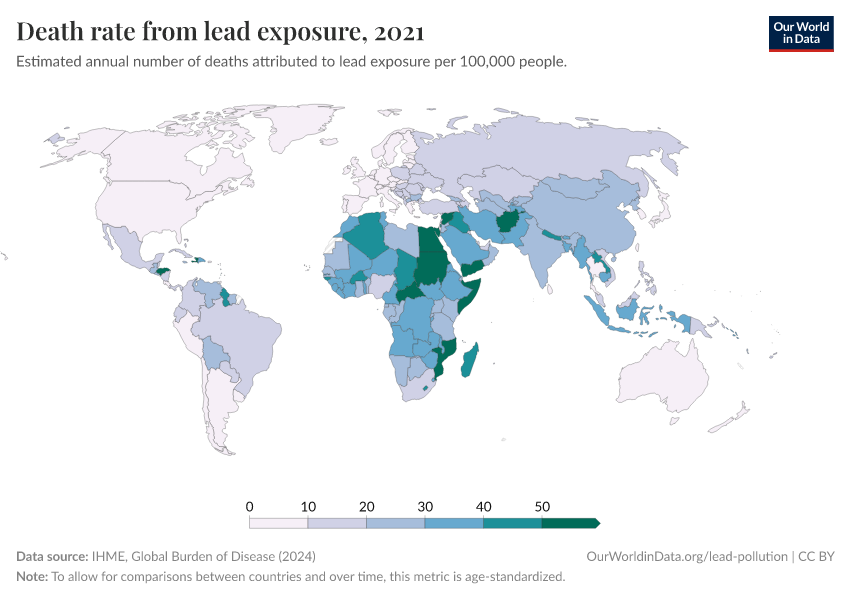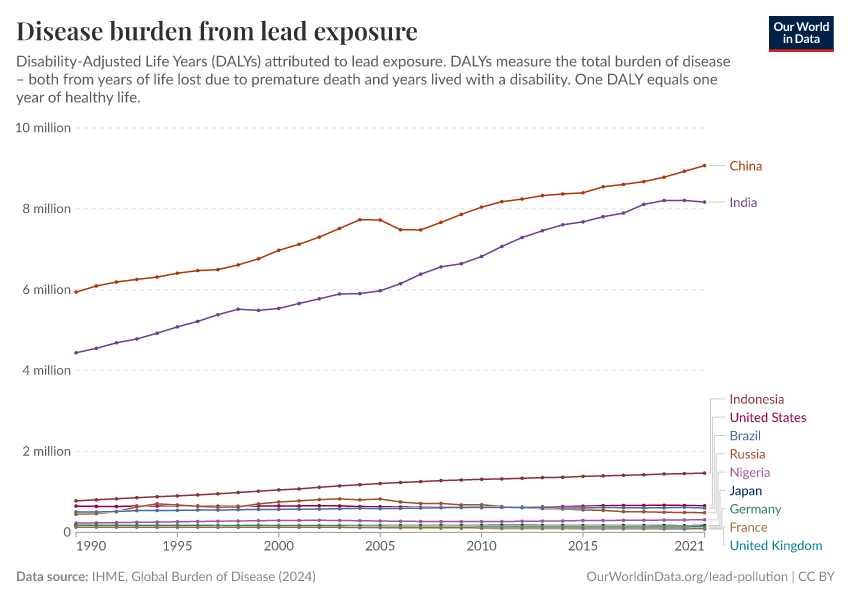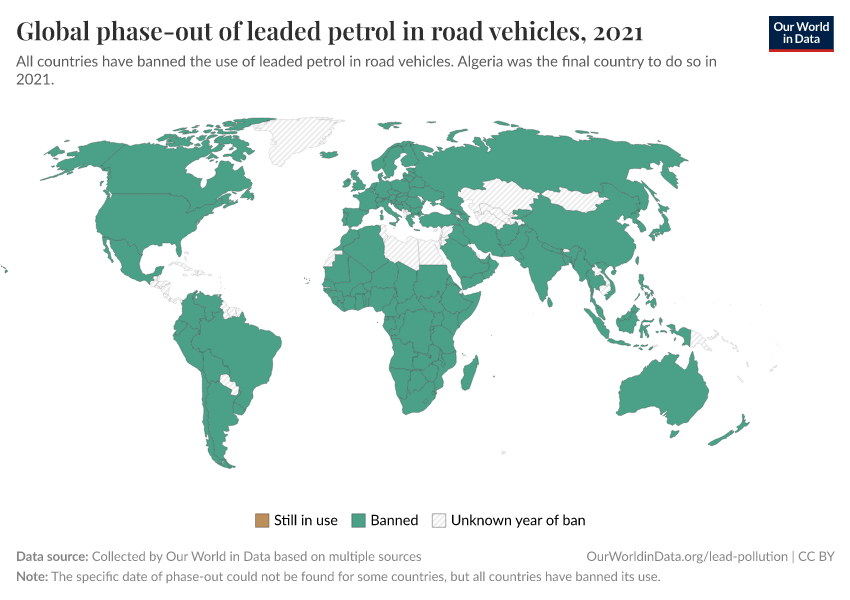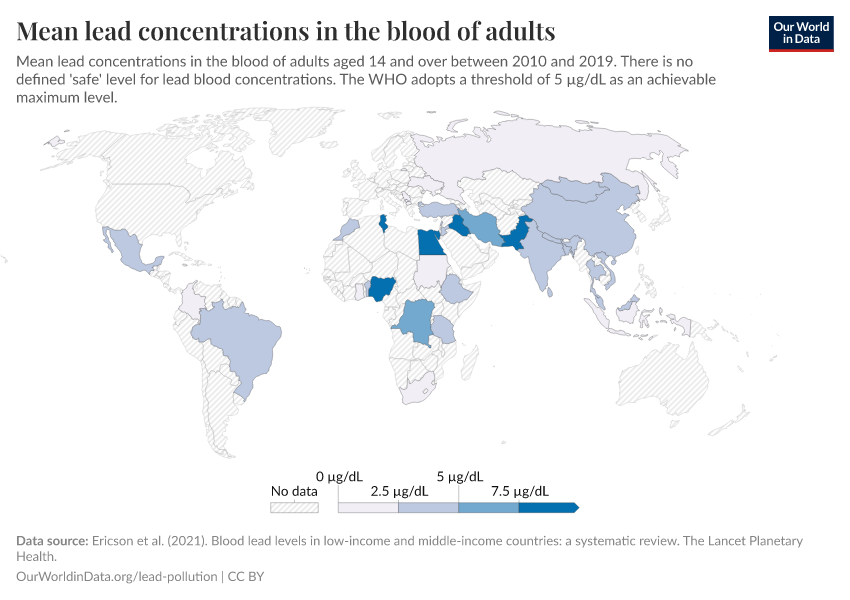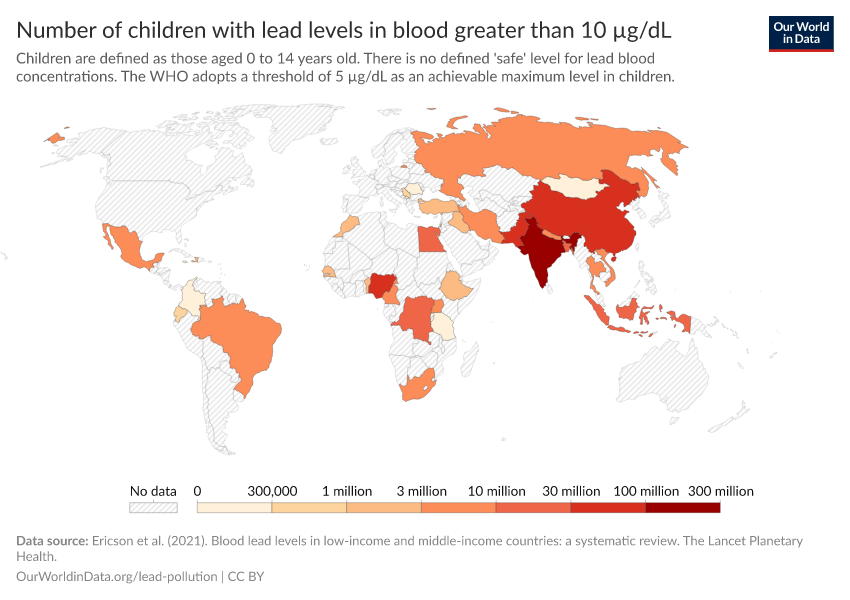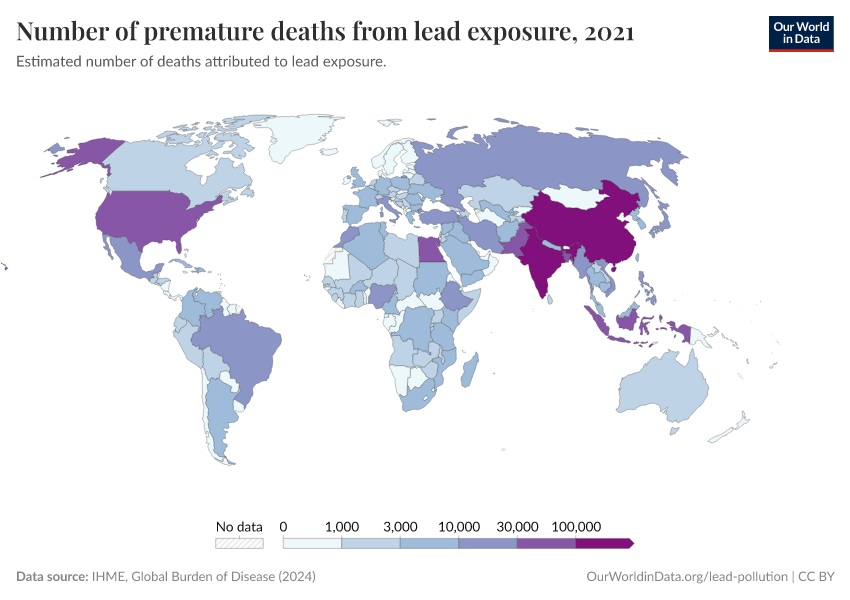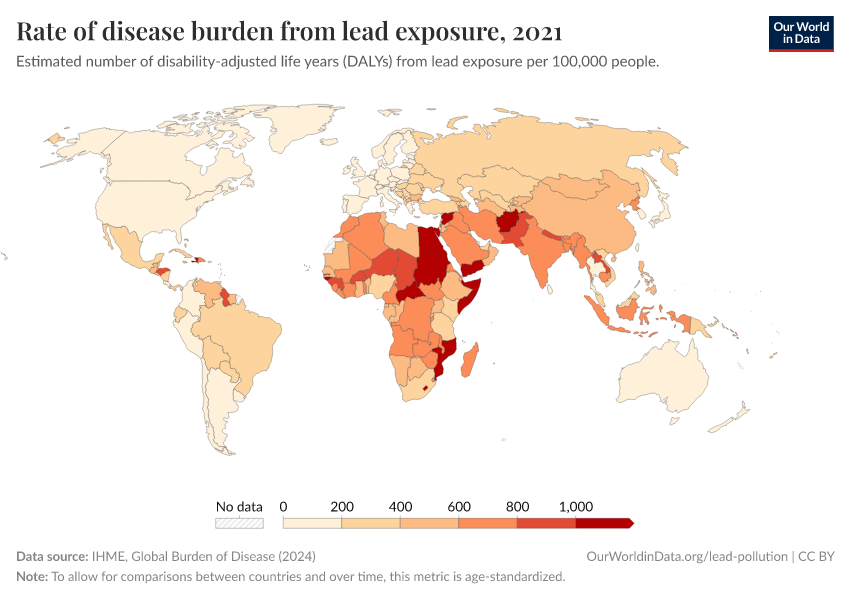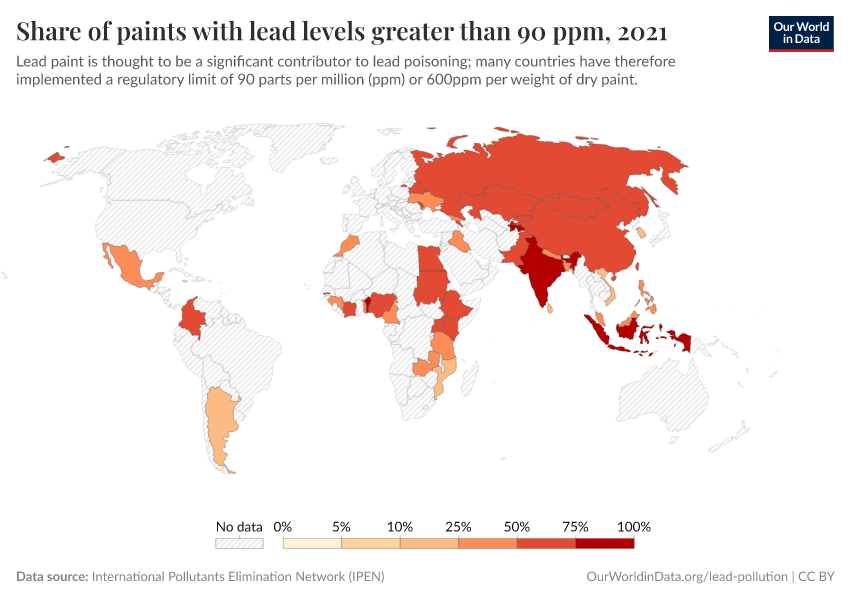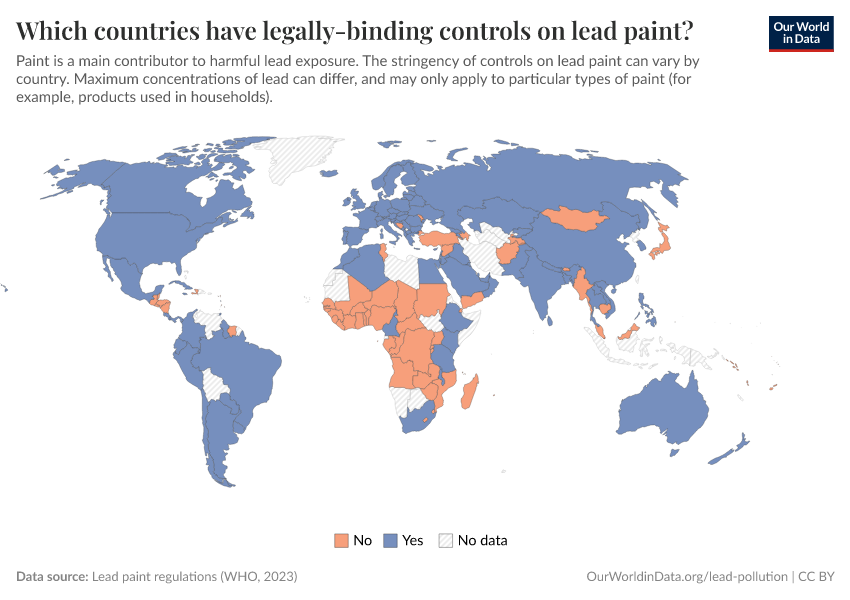Lead Pollution
Lead pollution is a widespread problem that receives little attention. What is the scale of the problem and how can we tackle it?
Lead poisoning is estimated to account for about 1% of the global disease burden.1
This is a large burden for a problem that gets very little attention.
On an individual level, being exposed to lead in the environment can hinder a child’s brain development: it can result in a reduction in IQ; cognitive function; and has been linked to higher levels of antisocial behavior.2
But it's a global problem that we can tackle. Many countries have already made significant progress against it.
On this page you can find all our data, visualizations and writing relating to lead pollution.
Key Charts on Lead Pollution
See all charts on this topicAcknowledgements
I would like to thank Lucia Coulter and Clare Donaldson, at the Lead Exposure Elimination Project, for their insights and support of this project. Thanks also to Max Roser for feedback and suggestions on this work.
Endnotes
The Institute for Health Metrics’ Global Burden of Disease study estimates that in 2019, lead exposure was responsible for just over 0.9% of global disability-adjusted life years (DALYs).
Attina, T. M., & Trasande, L. (2013). Economic costs of childhood lead exposure in low-and middle-income countries. Environmental health perspectives, 121(9), 1097-1102.
Lanphear et al. (2005) Low-Level Environmental Lead Exposure and Children’s Intellectual Function: An International Pooled Analysis. Environmental Health Perspectives.
Ericson, B., Dowling, R., Dey, S., Caravanos, J., Mishra, N., Fisher, S., … & Fuller, R. (2018). A meta-analysis of blood lead levels in India and the attributable burden of disease. Environment International, 121, 461-470.
Cite this work
Our articles and data visualizations rely on work from many different people and organizations. When citing this topic page, please also cite the underlying data sources. This topic page can be cited as:
Hannah Ritchie and Max Roser (2022) - “Lead Pollution” Published online at OurWorldinData.org. Retrieved from: 'https://ourworldindata.org/lead-pollution' [Online Resource]BibTeX citation
@article{owid-lead-pollution,
author = {Hannah Ritchie and Max Roser},
title = {Lead Pollution},
journal = {Our World in Data},
year = {2022},
note = {https://ourworldindata.org/lead-pollution}
}Reuse this work freely
All visualizations, data, and code produced by Our World in Data are completely open access under the Creative Commons BY license. You have the permission to use, distribute, and reproduce these in any medium, provided the source and authors are credited.
The data produced by third parties and made available by Our World in Data is subject to the license terms from the original third-party authors. We will always indicate the original source of the data in our documentation, so you should always check the license of any such third-party data before use and redistribution.
All of our charts can be embedded in any site.
